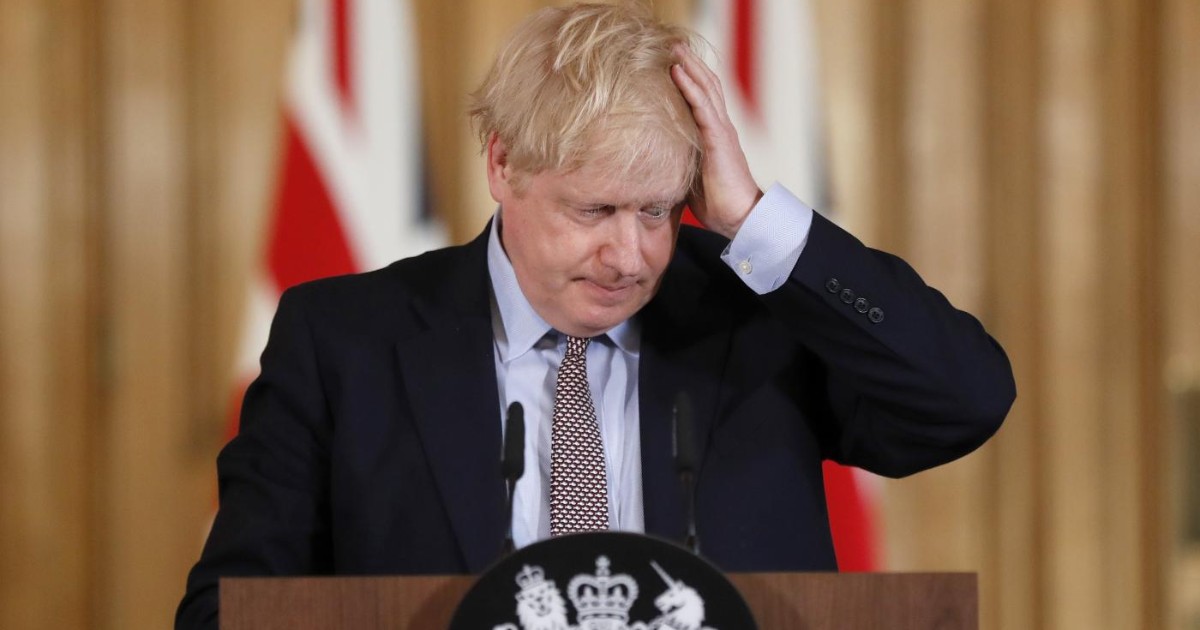“The gas is increasing, the cost of food has gone up and now with the cut of the Universal Credit I will have to skip a few meals again“. The sad and worried face of Rebecca, a young London mother, makes the rounds of UK televisions ringing in the ears of 5.8 million Britons, 40% regularly employed, who, like her, will lose l” integration of 20 pounds (about 23 euros) per week to the subsidy of Universal Credit, a ‘reinforce’ with which the government Johnson it had helped the less well off to cope with the pandemic. A not insignificant sum, 80 pounds less a month (1040 pounds a year), for that slice of the population that has barely faced the crisis in recent months, and which, moreover, will have to literally deal with the crisis since 1 October. ‘raising of 12% of the maximum limit set for i energy prices following which the bills gas and electricity averages will reach up to 1277 pounds per year. Not to mention the increase in the price of food which in August brought the inflation rate to +3,2%, the biggest leap ever recorded.
“Boris Johnson will show the absence of the most basic levels of humanity I know will allow that the cut to the Universal Credit goes on, ”he attacked Nicola Sturgeon from the Scotland, where the leader expects that 60,000 people, including 20,000 children, could be reduced to poverty. “The loss of over 1000 pounds a year will be devastating for many families who will have to literally take food out of their children’s mouths, and it will drive people into debt and despair. The Tories know this, ”Sturgeon reiterated at her party’s annual conference, lo Scottish National Party.
The scenarios quantified by the British research centers are disturbing: the Joseph Rowntree Foundation argues that nationwide the cut will hit more than one in three families with children, i dati del think tank Legacy Institute reveal that 840,000 people including 290,000 children will fall into poverty, and while according to the organization Citizens Advice a third of the people who receive Universal Credit will end up incurring debtGovernment models predict an increase in homelessness and food banks.
From Downing Street they minimize: “Whoever receives Universal Credit can compensate the cancellation of the 20 pounds working two extra hours a week – said the minister of pensions Therese Coffey. In fact, Universal Credit is not only a subsidy for the unemployed but also asupplement to earned income for those who receive the minimum wage. The amount of the subsidy it decreases by 63 cents per pound that comes earned, and for those – like Rebecca – who earn between 9 and 10 euros per hour and to work longer hours he has to pay a babysitter, the accounts remain in playoff at the end of the month.
The British government argues that the integration of the 20 pounds into Universal Credit was planned to be “one temporary measure to help those entitled during the harshest stages of the pandemic, and so it was ”. Now the challenge is there recovery economic and Boris Johnson intends to begin to reabsorb the emergency funds disbursed in the last year and a half due to Covid. But not without opposition. Starting with the former tory Ian Duncan Smith, the proponent of the Universal Credit, according to which the British Treasury risks running intoerror of austerity trying to reduce spending on the pandemic too quickly: “Universal Credit allows people to get back to work and helps leveling social disparities – Smith told the newspapers – now the government instead requires the population to start give it back Covid funds, but we should consider them as war debts“.
Johnson is no stranger to the controversy over subsidies to the underprivileged. In the midst of the pandemic it was the footballer Marcus Rashford to make the government turn around after the criticized decision by do not extend school meal vouchers to the holiday period, which immediately triggered the outrage of public opinion and the rush of volunteers to collect and distribute food in the homes of the most needy children. Again this time to block the 20 pound cut, Labor deployed the weapon of the parliamentary motion, during last Monday’s vote in the Commons as the hours were rising outside Westminster protests popular. With the conservatives forced to abstain, the ‘non-binding’ motion of Labor passed with 253 votes in favor against zero against, but ran aground against Johnson who decided to go ahead with the cut anyway: “Suspending the cancellation of the 20 pounds is a maneuver from £ 5-6 billion that we should find by raising taxes on everyone, I think instead that it is better to help those who receive the subsidy a develop more skills and find better-paying jobs“Said the British premier.
This policy of the Johnson government was pursued for example with the so-called Kickstart Scheme, a £ 2 billion program to facilitate employment, at no cost to UK companies, of young people aged 16-24, beneficiaries of Universal Credit, whose salaries are covered directly by the state for six months, 25 hours per week. From January to today, according to some still unofficial estimates, the program has made it possible to employ over 150,000 young people in temporary jobs. Numbers that, however, still do not remove the black clouds on the horizon when compared with the 538.000 young people under 25 who received Universal Credit during the lockdown and with an unspecified number of workers for which the layoffs funded by the government and could find themselves unemployed again.
–

